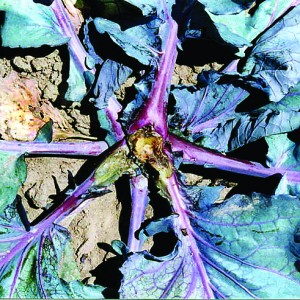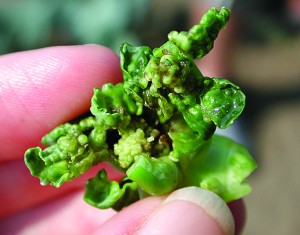The invasive swede midge has been slowly but relentlessly making its way into the Northeast. This tiny pest is a baddie, sometimes causing complete loss of entire plantings of cabbage, broccoli, cauliflower, and their cabbage-family kin.

New York is the top producer for fresh cabbage nationwide — and second in processing cabbage. The market value of cabbage alone in New York is $62 million per year. But other northeastern growers are worried too, as are gardeners who are in the know.
Finding sustainable, IPM pest management strategies before swede midge claims yet more ground is critical. But alternatives to chemical pesticides have yet to be developed. Today, the management recommendation — aside from long (and widely-spaced) crop rotations — is to apply systemic neonicotinoids at planting and weekly thereafter.
At the University of Vermont, Yolanda Chen wants to find plant- and systems-based alternatives. To that end, she and fellow researchers seek grower input via a survey to learn
- how much knowledge growers have on current effective pest management practices
- determine their willingness to try alternative pest management practices.

Chen anticipates the survey will take 5 – 8 minutes to complete, and every growers’ help will be greatly appreciated.
Learn more about swede midge.